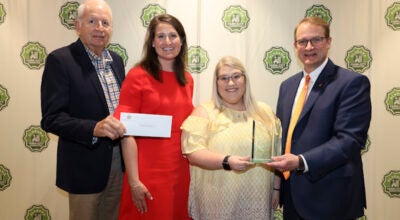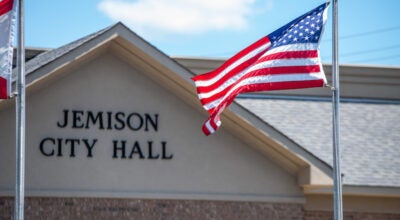Extension helps people get started with gardening
Published 5:23 pm Monday, March 9, 2009
The Chilton County Extension Office is offering Backyard GROWceries on March 17, 24 and 31. The three-part series will be held from 6-8 p.m. at Petals From the Past. Each evening, we will cover different aspects of vegetable gardening and build upon what was learned at the previous meeting.
The cost to participate is $15 and includes a voucher for one free soil test. For more information or to register please contact the Chilton County Extension Office at 280-6268.
Growing vegetables is both a fun and rewarding undertaking. A backyard vegetable garden can provide a family with fresh food, exercise, and a way to spend time together. There are many chores involved in growing vegetables but one of the most important is the preparation of the garden. This is often the step that is given the least amount of thought but it can be a critical factor in having a successful vegetable garden.
The first step is deciding just where the garden should go. Here are a few tips to help you choose the perfect spot: 1) vegetables need full sun (8 hours/day); 2) vegetables need water and in the absence of rain you will have to supply it so make sure your garden is in a convenient place for watering; 3) although they need water, vegetables do best in a well draining soil so low areas that hold water for extended periods of time after a rain should be avoided; 4) you will face weed problems no matter where you place your garden but, if possible, avoid areas with high populations of difficult to control weeds. Two that come to mind would be bermudagrass and nutsedge.
The size of your garden will be based on how much space you have available, how much food you want to produce, and most importantly how much time you have to devote to your garden. Many people make the mistake of starting too large. Weeding, watering, and harvesting require time and if you aren’t able to properly care for your garden you will be much more likely to have increased insect and disease problems. Start small, you can always expand the size of your garden next year.
There are numerous ways to work up the soil in the area that you choose. You can use anything from a tractor with a plow to a garden spade. Ideally you want to turn the soil to at least 6 inches. If the area has grass established in it (such as a backyard) you may want to consider killing the grass with a herbicide (weed killer) prior to planting. Always read and follow the label when using any pesticide. After treating the area with a herbicide you will need to wait a certain length of time before planting. The label will tell you how long to wait. If you choose to use a herbicide you will want to treat the area, wait the required amount of time, and then plow or work the soil in that area.
Once you’ve chosen the spot for your garden and worked the ground, you need to learn about the soil in that area. There is not much the average gardener can determine from just looking at the soil. For this step you will need to get your soil tested. The Chilton County Extension Office has the information you will need for testing your soil. There is a $7 charge per soil sample but trust me, this will be the most important $7 you spend as far as your garden is concerned. The soil test will determine what your soil pH is and how much, if any, lime you will need. You can choose the perfect spot, all the right varieties, and weed your garden daily but if your soil pH is not in the correct range your vegetables will not be able to grow properly. Most vegetables perform best at a pH of 5.5-6.5. The soil test will also measure the amount of phosphorus (P), potassium (K), calcium (Ca), and magnesium (Mg) in your soil. The soil test report will then tell you the amount of fertilizer you will need. Without this information you are very likely to over fertilize which can harm your plants, the environment, and waste money. If the soil test calls for lime, that should be incorporated prior to planting. The further in advance you can apply the lime the better because the reaction that occurs to raise the soil pH takes time.
These recommendations will have you well on your way to managing a successful backyard garden and putting fresh vegetables on your table. For more information on backyard vegetable gardening please visit: www.aces.edu/homegarden and click on the ‘Fruits, Nuts, & Vegetables’ link.






